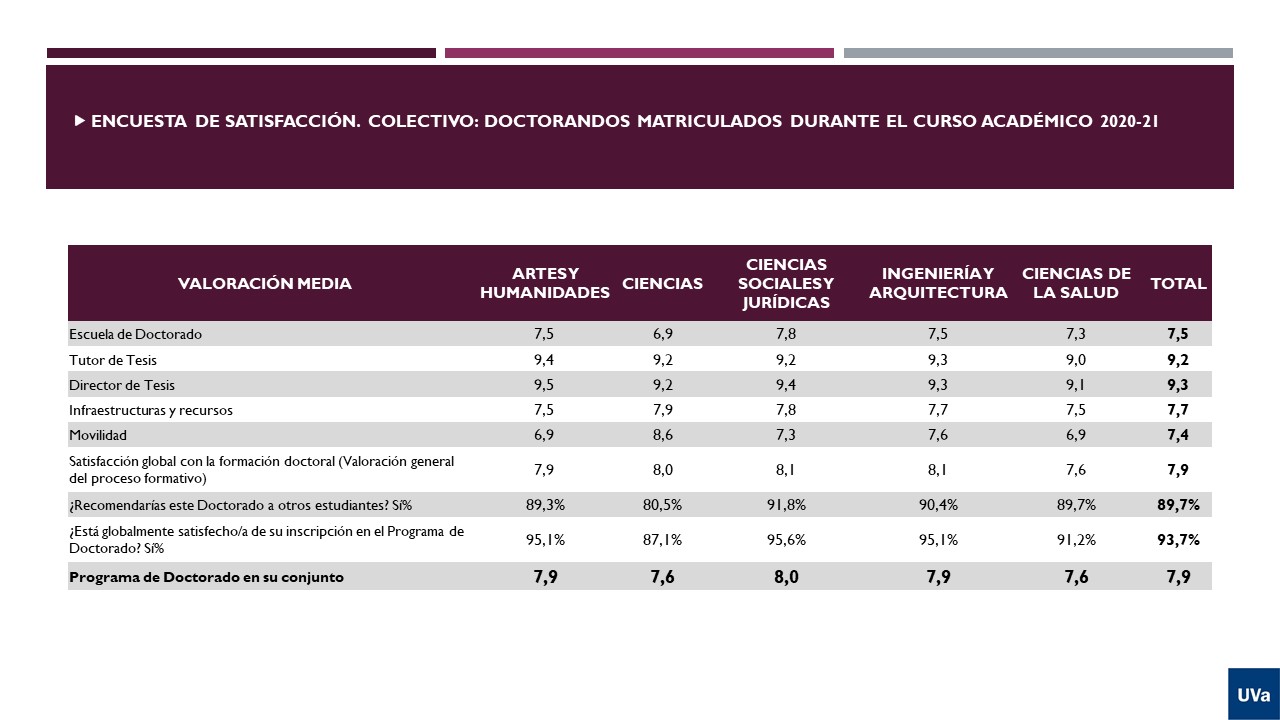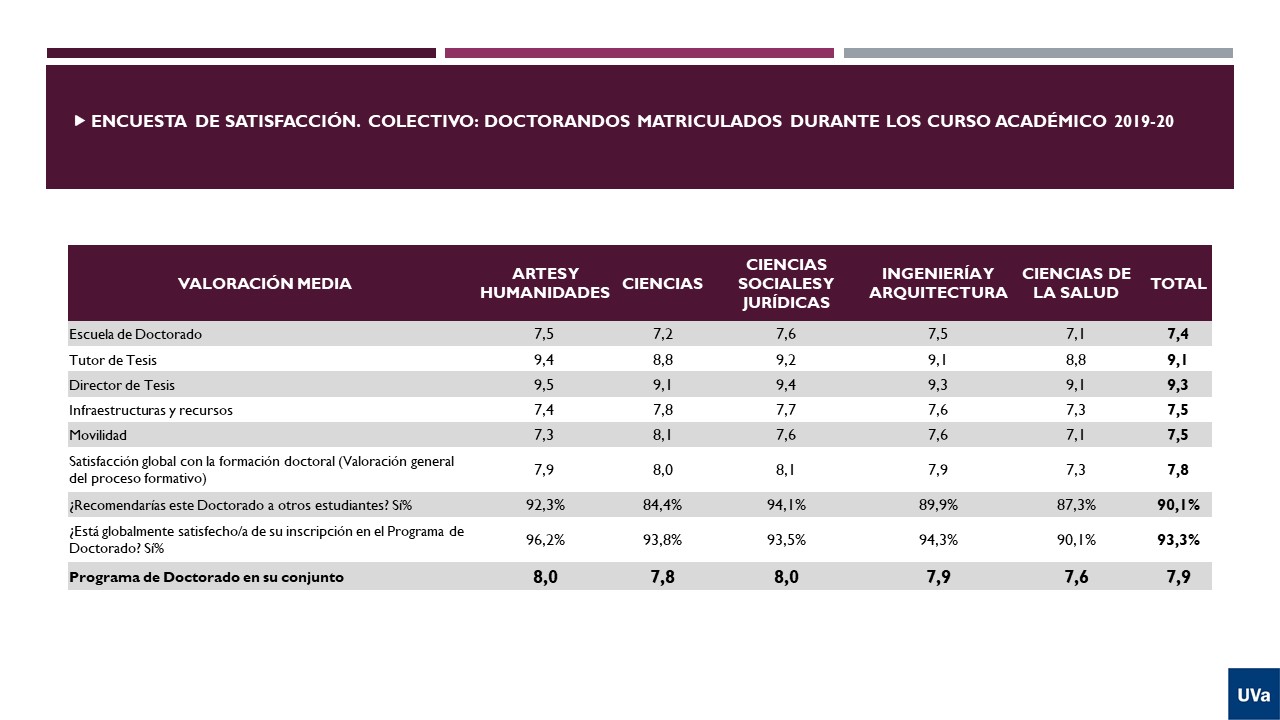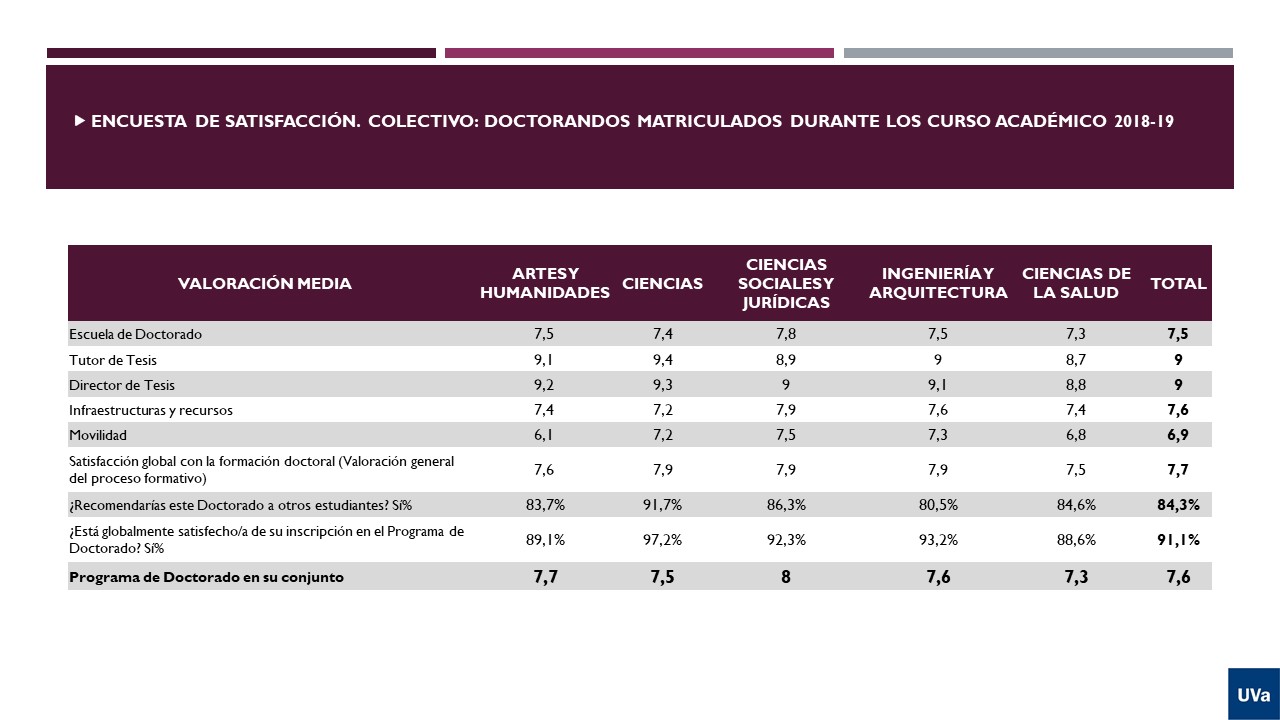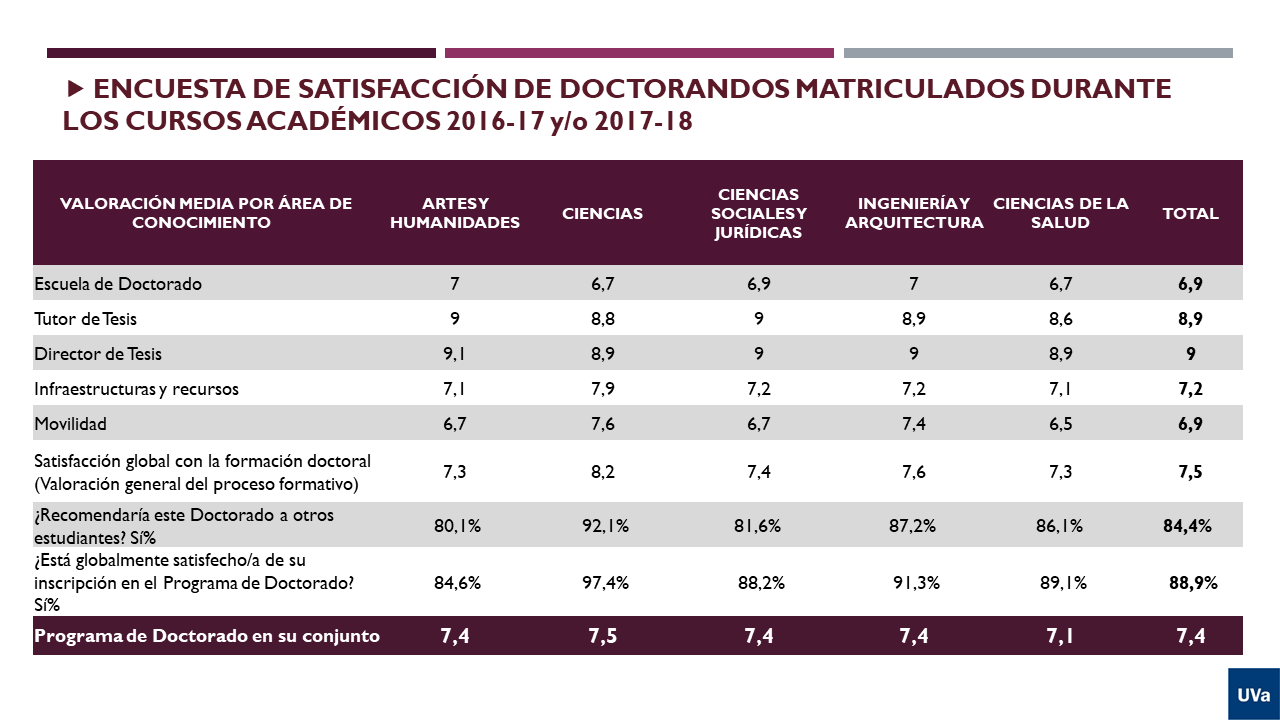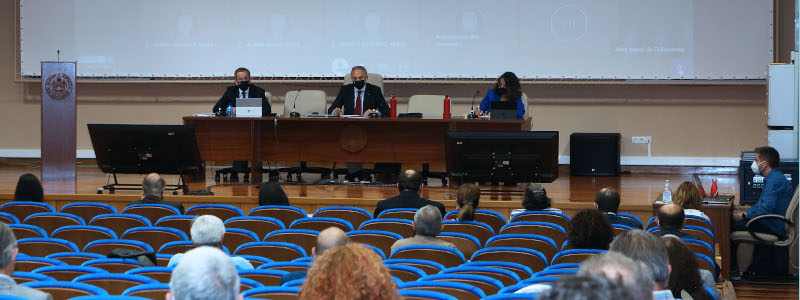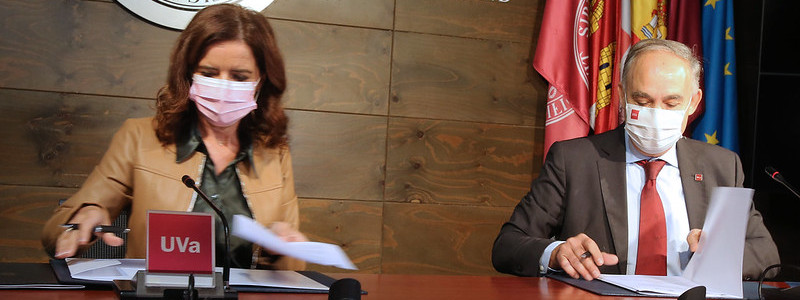Internal Quality Assurance System (IQAS)
1. Access and admission criteria and relevance of the admission profile
Admission to any doctoral programme is the responsibility of the Academic Committee of each doctoral programme and will be governed in all cases by the provisions of RD 99/2011 and the applicable rules approved by the University of Valladolid.
The Doctoral School (EsDUVa) ensures that the general and specific criteria for admission to doctoral programmes are published on the website of each programme and that they are in line with those specified in the programme's verification report.
2. Quality of training activities
The organisation, design and coordination of the specific training activities of each doctoral programme is the responsibility of the programme's academic committee.
The EsDUVa is responsible for the organisation, design and coordination of transversal training activities. These activities are monitored and reviewed annually, taking into account the evaluation (surveys), and the participation of doctoral students in previous years as well as the assessment and experience of the lecturers who have taught them.
3. Supervision and monitoring of doctoral students
Doctoral students admitted to any of the University of Valladolid’s doctoral programmes will enrol annually at the EsDUVa. As stipulated in RD 99/2011, the supervision and monitoring of doctoral students is the responsibility of the academic committee of each doctoral programme, supervisors and tutors, all of whom evaluate the research plan and doctoral activities document (DAD).
The EsDUVa regulates the criteria for full-time/part-time dedication and continuance in doctoral studies (Chapters II and III of the rules governing doctoral studies at the University of Valladolid).
4. Supervision of doctoral theses quality
Supervising the quality of doctoral theses is firstly the responsibility of the academic committee of each doctoral programme, the supervisors, and tutors. In addition, once a thesis has been deposited, the Doctoral Thesis Committee ensures that all ordinary theses are endorsed with a contribution or an article that has scientific impact –as recognised by the CNEAI– that they have received favourable external reports, and that the requirements to obtain an industrial mention, international doctorate mention or thesis in international co-supervision are fulfilled.
5. Quality of faculty staff
The EsDUVa Management Committee, through the EsDUVa Standing Committee, monitors the proposals of the academic committees of doctoral programmes for incorporation and departure of faculty staff. It is supervised that the faculty of the doctoral programmes have accredited research experience.
6. Coordination of theses under international co-supervision and industrial doctorates.
The EsDUVa regulates the requirements and procedure for obtaining the Industrial Doctorate Mention, as well as the requirements and procedure for processing doctoral theses under international co-supervision.
For the coordination of industrial doctorates and theses under international co-supervision, a specific agreement will be signed for each doctoral student. The EsDUVa provides support and advice for signing these agreements.
In the case of industrial doctorates, those in charge of coordinating this process will be the tutors, thesis supervisors, and the person responsible for overseeing the student at the company.
In the case of theses under international co-supervision, those in charge of coordinating this process will be the tutors and thesis supervisors at the two universities.
7. Results of doctoral programmes
The UVa's Research and Evaluation Office annually collects information on each doctoral programme based on RD 99/2011, UVa's rules for doctoral studies, and the programme's verification report. For this purpose, a set of indicators has been designed in order to evaluate the overall results of each programme.
ACSUCyL calendar for the verification, modification and monitoring of doctoral programmes.
PhD Data Observatory
| Calendar year | Number of theses defended with International Doctorate mention | % of theses with International Doctorate Mention over total theses defended |
|---|---|---|
| 2017 | 40 | 26,1% |
| 2018 | 59 | 47,2% |
| 2019 | 69 | 43,7% |
| 2020 | 43 | 41,0% |
| 2021 | 55 | 34,2% |
| 2022 | 44 | 29,7% |
| 2023 | 65 | 40,4% |
| 2024 | 42 | 29,2% |
Assessment of PhD students in:
